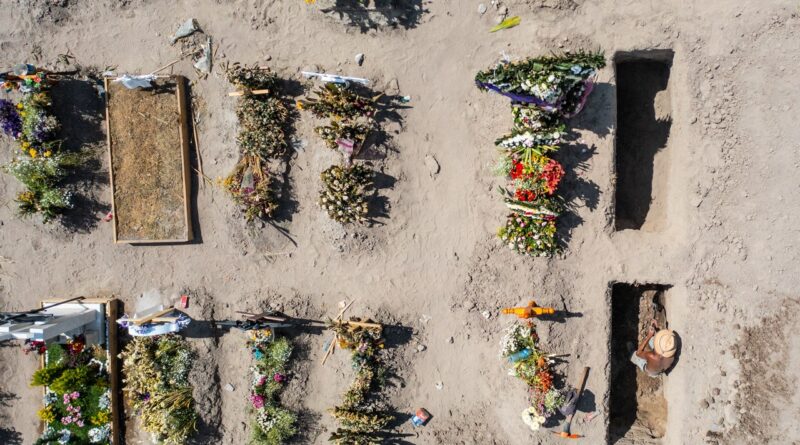Death As Life’s Work: What It’s Like to Be a Funeral Director or Gravedigger
As I was thinking about Campbell’s book and the work of death more broadly, I decided to call my friend David Campbell (no relation to the author), a writer and former funeral director/embalmer currently based in Paris. He spent 10 years in the US funeral industry, serving urban, suburban, and rural communities in Virginia; working-class and immigrant Latino communities in Brooklyn; and wealthy Jewish communities in Manhattan. Life as a freelance funeral director was tough on his body and mind, and as he tells me, the money wasn’t great either. He remembers likening the experience to gig work, making about $150 to embalm a body, or up to $250 if it was a more complicated job involving a “radically altered” corpse.
“Working conditions really depend on the individual facility, but they can be quite poor, and include things like unsanitary embalming instruments, such as reused and unsanitized scalpels, or needles and other forms of exposure to biohazardous waste,” David says. “Even if the equipment is all functioning smoothly, it’s a lot of strain on your back to be lifting bodies and caskets all day. Most funeral directors have pretty serious back problems, and young at that.”
“One of the benefits of working for the large, soulless funeral corporations,” David adds, “is that they offer health insurance; small-business funeral homes often can’t afford to. And then, of course, there’s all the psychological stress too.”
As difficult as it was, he knew that he had it a lot easier than some death workers; David at least had a choice in his occupation. “Even when the pay isn’t great in the funeral business, it sure beats filling mass graves on Rikers for a whopping $6 an hour,” he tells me. In 2020, during the early days of the pandemic, the city of New York offered incarcerated workers at the Rikers Correctional Facility the option of burying COVID victims on Hart Island. Those who took the job were paid less than half the city’s minimum wage to bury the unembalmed corpses of the virus’s dead.
The essential labor of those incarcerated workers is part of the broader, secretive landscape of American death work. With her book, Hayley Campbell is trying to change that, or to at least change the way we think about the work of death. During our interview, she shares a particularly painful moment from when she was writing the book: On one of those 2020-era evenings when New Yorkers were banging pots and pans from their windows to show gratitude to essential workers for putting their lives on the line for society’s benefit, Campbell found herself crying angry tears. “Nobody was standing out there and banging pots for any of the people who were doing funerals or looking after the bodies in the temporary mortuaries that were coming up all over the city,” she explains. “There is so much hidden labor going on, and we are benefiting from it, because what they’re doing isn’t just handling the dead, they are doing work to handle our ongoing lives and emotions…. We would be completely lost without them, especially during a pandemic.”
By shining a light on the people who have devoted their working lives to the dead, the author hopes to illuminate their struggles and dedication as well as the dignity of their labor. The living have always performed the essential work of caring for the dead, and those workers deserve to share their stories — good, bad, traumatic, beautiful, and mundane — too. After all, there’s nothing more human than dying.
“I’ve come away from [writing the book] being much, much more conscious of time; the cliché of life being too short is actually true, and to be presented with that every day, if you work in death, that must be somewhere in your mind at all times,” Campbell says. “But what I found with the death workers is that they are not somber, as you think they’re going to be. They are the most fun to have in the pub, because they’ve seen the worst thing and they’ve made some kind of peace with it.”
Stay up-to-date with the politics team. Sign up for the Teen Vogue Take



